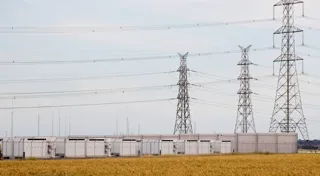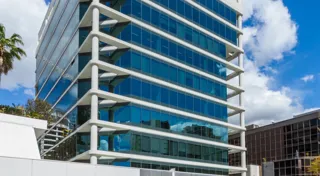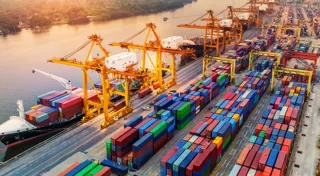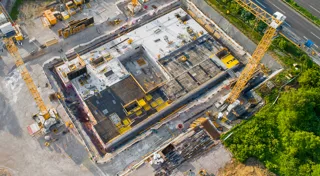Novalith sets sights on global lithium industry with backing of the CEFC
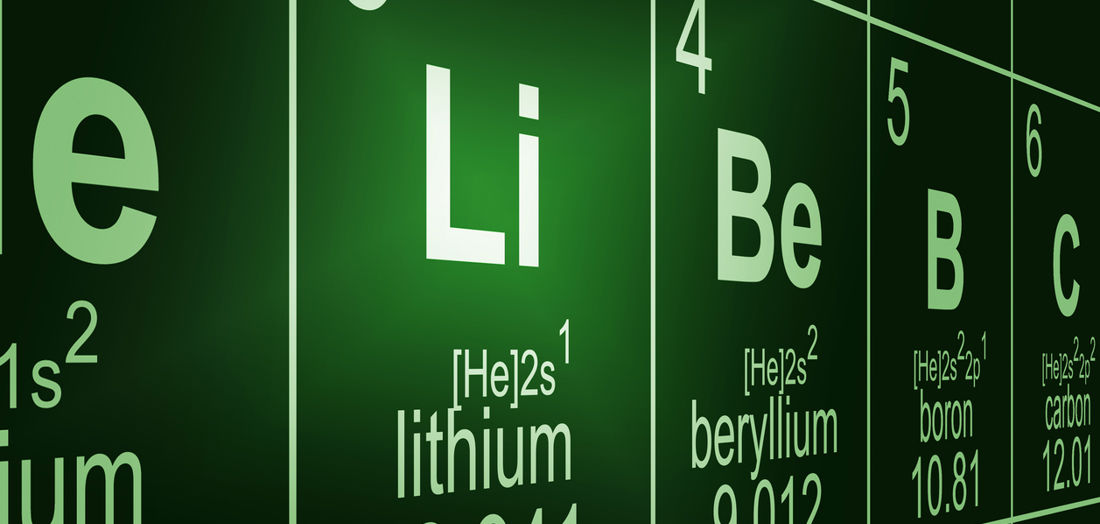
21 October 2021
An Australian climate technology company is targeting the global lithium market with ground-breaking Australian-made technology that could revolutionise the global battery supply chain. With the backing of the CEFC, Novalith is set to accelerate the development of its novel low carbon, sustainable approach to lithium production, with the goal of substantially reducing production costs and improving sustainability outcomes.
The CEFC, through the Clean Energy Innovation Fund, has made a $1.5 million* investment in Novalith’s $2.5 million seed round, which also drew support from the US-based venture capital investor, The Jeremy and Hannelore Grantham Environmental Trust’s Neglected Climate Opportunities LLC. The CEFC investment is on behalf of the Australian Government.
The seed round will allow Novalith to finance the build-out and operation of a pilot plant in Sydney, as it moves toward the development of a commercial demonstration plant.
Lithium is a key component of rechargeable batteries, used to electrify transport and decarbonise energy markets. Conventional lithium mining and production methods can have a material carbon and cost footprint. The Novalith LiCALTM technology transforms this production process, drawing on intellectual property developed by chemical engineer Professor Brian Haynes, Emeritus Professor at the University of Sydney.
CEFC CEO Ian Learmonth said: “The Novalith technology has the potential to change the nature of lithium production by using less energy and creating less emissions than current alternatives. It also offers an exciting opportunity for Australia to become a major processing, manufacturing and trading hub for lithium resources rather than merely exporting raw materials.”
“Large batteries will play a transformative role in our energy future, enabling Australia to maximise the benefits of our abundant renewable resources and accelerate our transition to a low emissions economy.”
“As the largest lithium miner in the world, it is vital that we secure critical mineral supply chains to develop sovereign capability for the industry and to be more competitive globally. By investing in this ground-breaking Novalith technology, we are backing the development of a competitive sustainable business of the future.”
With most hard rock lithium produced in Australia exported for processing, there is significant potential for Australia to add value to its minerals sector, by developing its own lithium processing and purification industry. Analysis suggests a diversified battery industry using onshore materials processing could create more than 34,000 jobs and increase the value of the Australian battery industry by $7.4 billion by 2030.1
Global battery uptake is expected to grow at least nine-fold over the next decade as the world increases its use of renewable energy.2 The flow on demand for lithium has focused attention on the sustainability of lithium mining and production methods. Conventional methods for mining and refining lithium can be environmentally challenging, with material carbon and reagent footprints. The extraction of lithium from salt-lake brine also produces significant land and water footprints.
The Novalith process for extracting lithium consumes carbon dioxide as a reagent, reducing emissions, eliminating the need for conventionally consumed chemicals and minimising waste footprints. The Novalith approach also negates the need for extensive offshore processing, enabling Australian-produced lithium ore to be processed closer to mine sites, further strengthening the sustainability of the supply chain.
Novalith Founder and CEO Steven Vassiloudis said: “Demand for lithium continues to grow as the world advances its transition to renewable energy to reduce emissions. Novalith can be an important part of sustainable supply solutions, as well as help resource owners process lithium onshore, localising critical battery materials supply chains.
“The future of lithium mining and refining will require the elimination of carbon-intensive energy sources, and ideally turn carbon waste into carbon value. This is what we are working towards. Novalith’s technology uses significantly less equipment, chemical reagents, water and energy than conventional processing, which reduces capital and production costs. The direct use and sequestration of CO2 in producing lithium chemicals also produces a much smaller emissions footprint.”
CEFC Clean Energy Innovation Fund Executive Director Ben Gust added: “Ongoing demand for low-footprint lithium is likely to strengthen as regulators and markets transition to more sustainable supply chains. Novalith has built an impressive team with relevant commercial and technical backgrounds. The company has also outlined an exciting strategy to scale quickly as the demand for lithium continues to escalate.”
The three co-founders of Novalith have deep industry expertise. Mr Vassiloudis, a director of international chemical engineering and process plant provider Kemplant, is a chemical engineer with extensive process scale up and pilot plant experience. Co-founder and Chief Technology Officer Dr Andrew Harris is a professor of chemical engineering at the University of Sydney and has extensive experience in commercialising and scaling up novel process technologies. Co-founder and Chief Business Development Officer Christiaan Jordaan also founded Sicona Battery Technologies and has an extensive network of contacts in the battery materials and supply industries.
The Novalith Advisory Board includes Dr David Deak, President of Marbex LLC and the former Chief Technology Officer of Lithium Americas Corp. Dr Deak was also part of Tesla’s founding Gigafactory team. Professor Haynes is also a member of the Novalith Advisory Board.
*The CEFC commitment to Novalith was increased to $7.8 million in April 2023.
1 Future Battery Industries CRC, Future Charge – Building Australia’s Battery Industries, June 2021. P4. https://fbicrc.com.au/wp-content/uploads/2021/06/Future-Charge-Report-Final.pdf
2 Future Battery Industries CRC, Future Charge – Building Australia’s Battery Industries, June 2021. p3. https://fbicrc.com.au/wp-content/uploads/2021/06/Future-Charge-Report-Final.pdf
Media release, 2021

